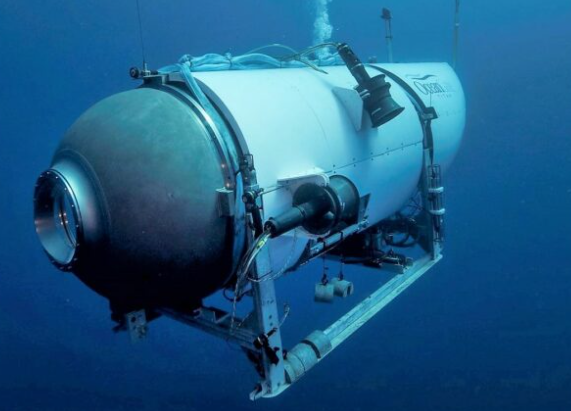Recovering the bodies of the five people who were on board the tragic OceanGate submarine on its way to the Titanic debris is an incredibly long shot, according to experts.
On Thursday, the US Coast Guard confirmed that the four tourists, including two millionaires, and the CEO of OceanGate Expeditions had died in the “catastrophic implosion” of the submersible.
While the precise timing of the titan’s strong underwater implosion throughout its route to the ruins 12,500 feet below the ocean’s surface will forever remain a mystery, the difficulty of recovery attempts is high due to the nature of the accident.
“This is an incredibly unforgiving environment down there on the sea floor and the debris is consistent with a catastrophic implosion of the vessel,” Rear Adm. John Mauger of the US Coast Guard said at a press conference Thursday.
“We’ll continue to work and search the area down there but I don’t have an answer for prospects at this time,” he added of the bodies being recovered.
Submersible expert and co-founder of private sub firm Sub-Merge Ofer Ketter told The Post that the vessel’s implosion, in which the vessel violently caved inward under the great pressure of the water, would have ground parts of the submersible “to dust.”
“To me, it makes absolute sense that the chamber, the pressure chamber where the passengers are sitting in, did not withstand the pressure because of the material that it was built on,” he said.
“And that is exactly what imploded and turned to dust. Everything else that was either made of titanium or perhaps other steels, survived, and that’s what was found.”
He went on to say that it would have taken less than a nanosecond to occur.
“They never knew it happened,” Ketter said of the five victims, “which is actually very positive in this very negative situation.”
Dr. Peter Girguis, a Harvard University professor and adjunct oceanographer in applied ocean engineering and physics at the Woods Hole Oceanographic Institution, compared the submersible to a scuba tank.
“When a scuba tank is overfilled, there’s a safety device that releases gas very quickly,” he told The Post.
“When you take the equivalent of a scuba tank and you want it to hold the pressure out, it’s a different story — because if you go beyond the strength of the vessel, then it crushes or collapses,” he explained.
OceanGate founder and CEO Stockton Rush, 61, and OceanGate investor Suleman Dawood, 19, lost their lives, along with their father, business mogul Shahzada, 48, British billionaire Hamish Harding, 58, and renowned Titanic explorer Paul-Henri Nargeolet, 77.
On Sunday morning, the company started their descent toward the Atlantic depths for what was intended to be an amazing adventure.








